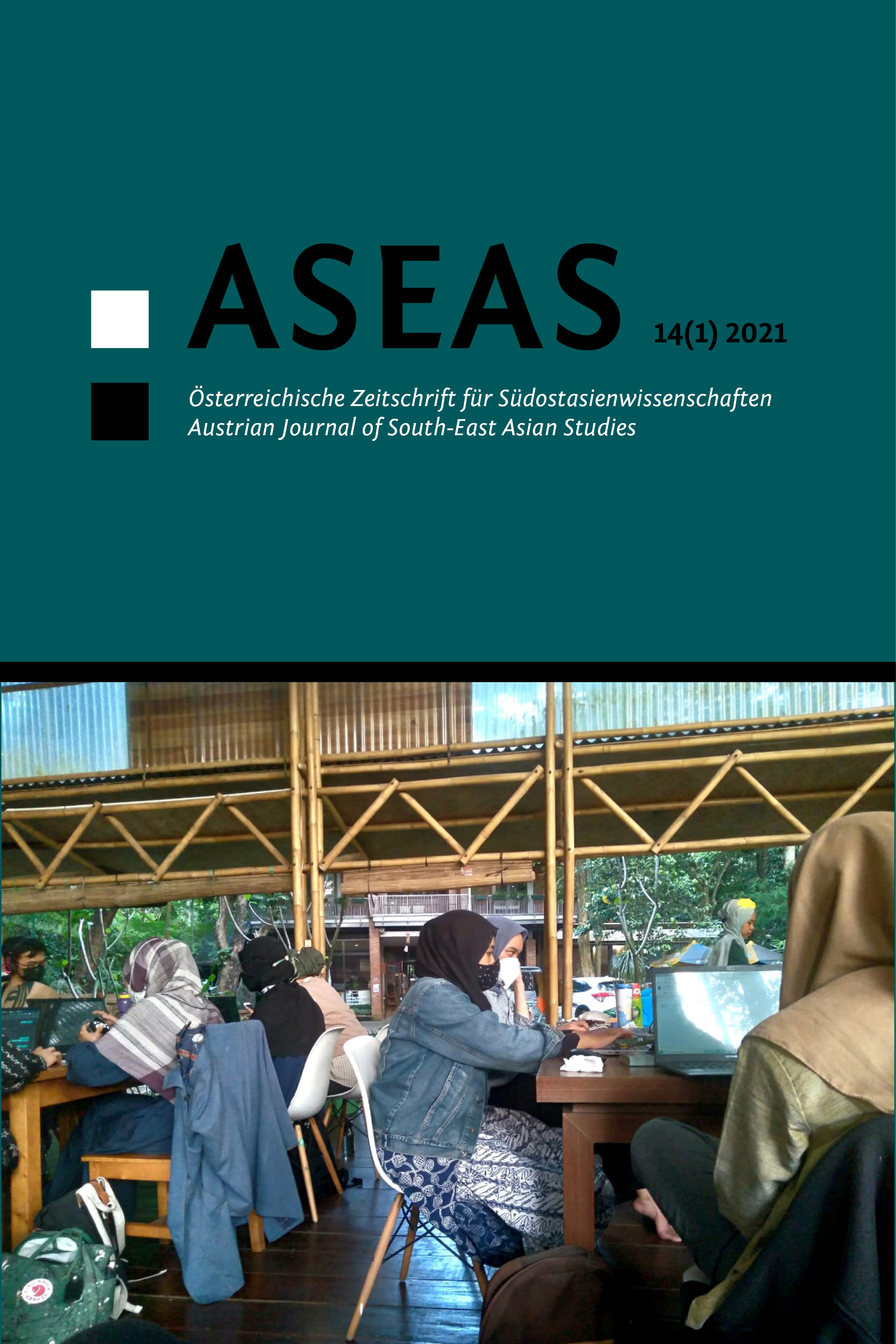Editorial
DOI:
https://doi.org/10.14764/10.ASEAS-0051Keywords:
-Abstract
-
References
Bijl, P., & Grace, C. (Eds). (2020). Appropriating Kartini. Colonial, national and transnational memories of an Indonesian icon. ISEAS – Yusof Ishak Institute.
Einzenberger, R., & Schaffar, W. (2018). The political economy of new authoritarianism in Southeast Asia. Austrian Journal of South-East Asian Studies, 11(1), 1-12.
Mahy, P. (2021). Indonesia’s omnibus law on job creation: Reducing labour protection in a time of COVID-19. Labour, Equality, and Human Rights Research Group, Working Paper No. 23. https://doi.org/10.13140/RG.2.2.25951.28329
Morgenbesser, L. (2020). The rise of sophisticated authoritarianism in Southeast Asia. Cambridge University Press.
Rüland, J. (2021). COVID-19 and ASEAN: Strengthening state-centrism, eroding inclusiveness, testing cohesion. The International Spectator. https://doi.org/10.1080/03932729.2021.1893058
Sembiring, R., Fatima, I., & Widyaningsih, G. A. (2020). Indonesia’s Omnibus Bill on Job Creation: A setback for environmental law? Chinese Journal of Envirnmental Law, 4, 97-109.
The ASEAN Post. (2018, July 17). Southeast Asia’s widening inequalities. https://theaseanpost.com/article/southeast-asias-widening-inequalities
Downloads
Published
Issue
Section
License
Copyright (c) 2021 Society for South-East Asian Studies (SEAS)

This work is licensed under a Creative Commons Attribution-NonCommercial-NoDerivatives 4.0 International License.
For all articles published in ASEAS before December 2014 and after July 2022, copyright is retained by the authors. For articles published between January 2015 and June 2022, the Society for South-East Asian Studies (SEAS) is the copyright holder. Articles published in ASEAS before December 2019 are licensed under the following Creative Commons License: Attribution-NonCommercial-NoDerivs 3.0 Unported. Articles published after that date are licensed under the following Creative Commons License: Attribution-NonCommercial-NoDerivs 4.0 International. In both cases, this means that everybody is free to share (to copy, to distribute, and to transmit the work) under the following conditions:
-
Attribution — You must give appropriate credit, provide a link to the license, and indicate if changes were made. You may do so in any reasonable manner, but not in any way that suggests the licensor endorses you or your use.
-
NonCommercial — You may not use the material for commercial purposes.
-
NoDerivatives — If you remix, transform, or build upon the material, you may not distribute the modified material.


